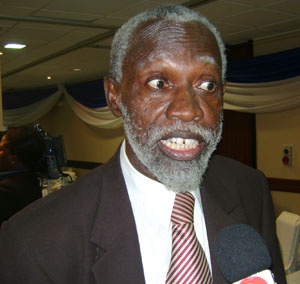Dr Kwame Nkrumah, at a point in time, treated Ghanaians like slaves, a leadership expert and former Rector of the Ghana Institute of Management and Public Administration (GIMPA), has said.
Speaking on Founders’ Day, Prof Adei said Ghanaians need to pause and dispassionately assess the policies adopted by its first president to determine which of them could be adopted for the nation’s development and those which have to be discarded.
According to him, most Ghanaians adulate Dr Nkrumah mainly for leading the country out of colonial rule to independence and for the developmental activities he undertook during his presidency – a model many Nkrumahists have suggested Ghana should return to in order to accelerate its march to middle income status.
But Prof Adei said there were blemishes to Dr Nkrumah’s rule, given the iron fist with which he governed the country in the latter years of his rule.
He told Chief Jerry Forson on Ghana Yensom on Accra100.5FM on Wednesday September 21 that in the first 10 years of his rule – beginning from 1951 when he was Leader of Government Business until 1960 when he became President of Ghana as a republic – “did very well”, adding: “But once we became a republic, he undid all he had achieved. Winning self-rule from the British, he presided over Ghanaians as if they were slaves.”
Dr Nkrumah, according to Prof Adei, also moved Ghana from a free market economy to a communist one such that most industries in the country had become less profitable in their operations, racking up “huge debts and all”.
“So, in all honesty…by 1966, he had destroyed the nation,” he continued.
“So, what I realise is that not all of Kwame Nkrumah’s vision will be useful today because he was partly responsible for the rot in the system after we became a republic. That must be made known because many people hail Nkrumah so much but he subjected Ghanaians to despotic rule before his overthrow. For that reason, Ghanaians must pause to reflect and ask themselves: ‘What is it that Nkrumah did for us that we can continue…and what did he do that are not desirable that we should discard for our progress?’ We must have a sober reflection on the positive sides of Nkrumah to build on as well as the negatives.”
General News of Thursday, 22 September 2016
Source: classfmonline.com













